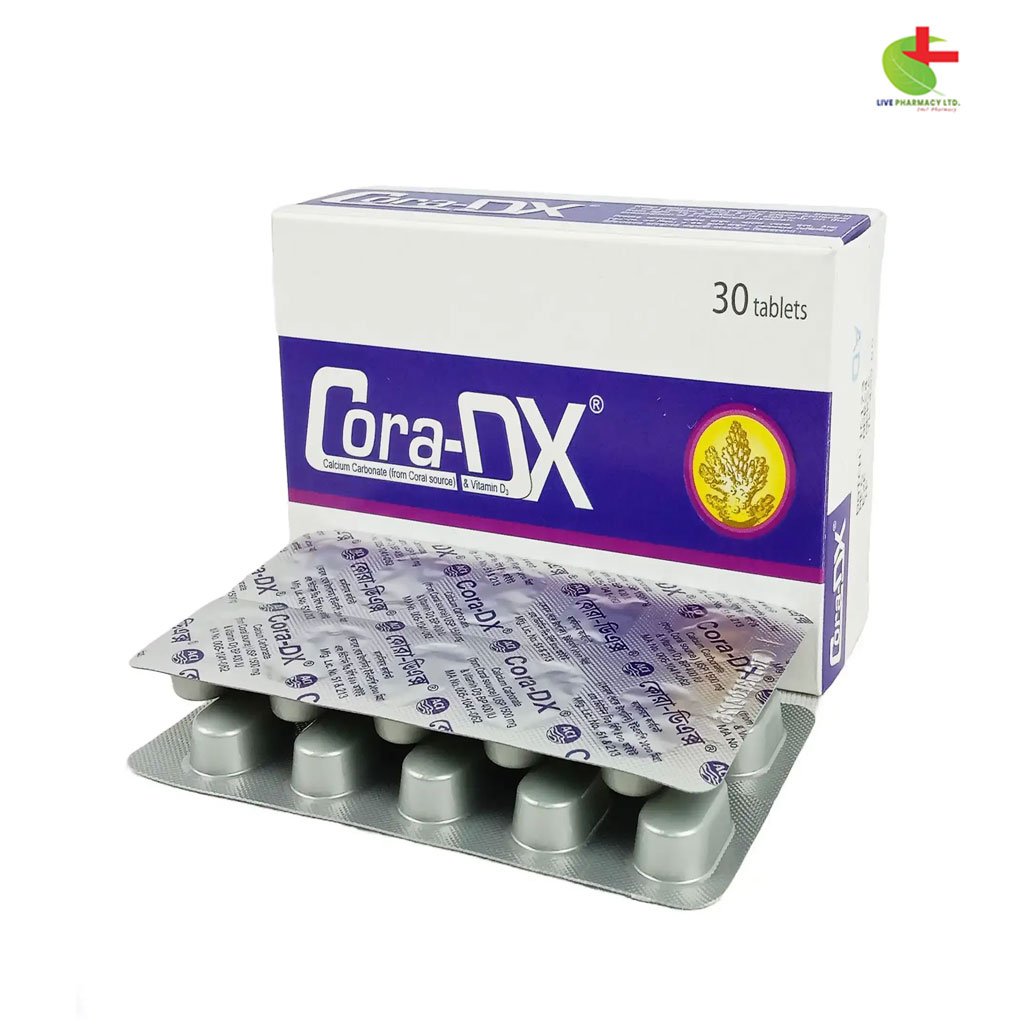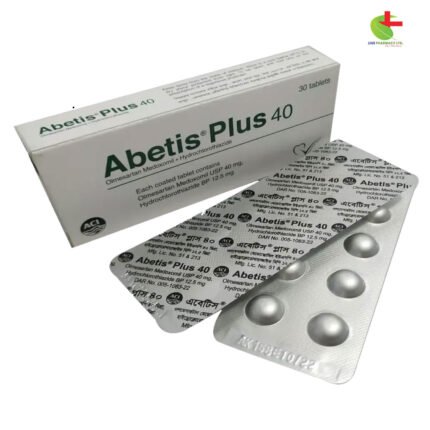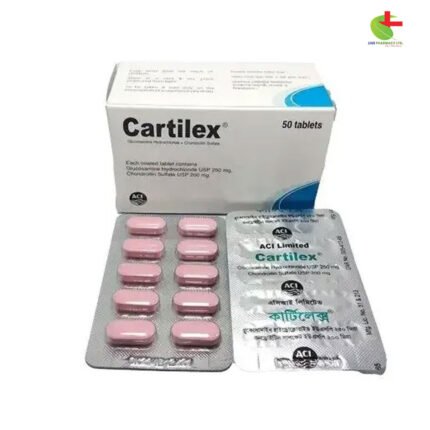Cora-DX
160.00৳ Strip(10)
- Cora-DX tablet is used for the treatment and prevention of osteoporosis, osteomalacia, tetany, hypoparathyroidism, and other bone-related disorders.
- It also serves as a supplement for inadequate calcium intake during childhood, pregnancy, lactation, and in the elderly.
- Contains Calcium Carbonate (from coral) and Vitamin D3 to enhance calcium absorption and promote bone health.
- Available as tablets and effervescent tablets for better absorption when taken with a full stomach.
 Brand
Brand
|
ACI Limited |
|---|---|
 Generics
Generics
|
Coral Calcium + Vitamin D3 |
 Type
Type
|
Tablet |
Indications
Cora-DX tablets are primarily indicated for the prevention and treatment of:
- Osteoporosis
- Osteomalacia
- Tetany
- Hypoparathyroidism
- Osteogenesis disorders
Additionally, Cora-DX tablets serve as a calcium supplement for those with inadequate dietary calcium intake, including children, pregnant and lactating women, and elderly patients. Other uses include the treatment of rickets, pancreatitis, and as a phosphate binder in chronic renal failure.
Consult with a registered healthcare professional before using this medication.
Composition
Each Cora-DX tablet contains:
- Calcium Carbonate USP 1250 mg (Coral source), providing 500 mg of elemental Calcium
- Vitamin D USP 200 IU
Each DX tablet contains:
- Calcium Carbonate USP 1500 mg (Coral source), providing 600 mg of elemental Calcium
- Vitamin D USP 400 IU
Each effervescent tablet contains:
- Calcium Carbonate USP 1500 mg (Coral source), providing 600 mg of elemental Calcium
- Vitamin D3 (Cholecalciferol USP) 400 IU
Pharmacology
Calcium plays a crucial role in many bodily functions, including bone health. It is essential for the prevention and treatment of osteoporosis and related fractures. Vitamin D enhances calcium absorption from the gastrointestinal tract and stimulates bone formation. The synergy of Calcium and Vitamin D is vital for optimal bone health and the prevention of osteoporosis. This formulation contains Coral Calcium, which closely resembles human bone composition, improving absorption. Vitamin D3 ensures efficient calcium absorption and helps maintain calcium balance in the body.
Dosage & Administration
- Regular tablet: Take one tablet once or twice daily with plenty of water, or as prescribed by your healthcare provider. For optimal absorption, take with food.
- Effervescent tablet: Dissolve one tablet in a glass of water, stir and drink. For best absorption, take with food.
Follow your healthcare provider’s instructions for dosage.
Interactions
- Thiazide diuretics: May reduce calcium excretion, increasing the risk of hypercalcemia. Monitor serum calcium levels.
- Corticosteroids: Can reduce calcium absorption. Consider adjusting the calcium dose during concurrent use.
- Cholestyramine or laxatives: May reduce vitamin D absorption.
- Tetracycline antibiotics: Take at least 2 hours before or 4–6 hours after calcium intake.
- Cardiac glycosides: Hypercalcemia may increase the toxicity of these drugs. Regular monitoring of ECG and serum calcium levels is required.
- Bisphosphonates: Take Cora-DX at least 3 hours before or after these medications to avoid reduced absorption.
Foods high in oxalic acid (e.g., spinach) and phytic acid (e.g., whole grains) can interfere with calcium absorption.
Contraindications
- Hypercalcemia and hyperparathyroidism
- Hypercalciuria and nephrolithiasis
- Hypersensitivity to any component of this product
- Severe renal insufficiency
- Concomitant digoxin therapy (requires close monitoring of serum calcium levels)
Side Effects
Possible side effects of Calcium Carbonate include gastric irritation, constipation, and hypercalcemia (rare, typically with high doses in patients with renal issues). Other potential side effects include allergic reactions, nausea, vomiting, dry mouth, and drowsiness. Skin rash may occur with Vitamin D supplementation.
Pregnancy & Lactation
During pregnancy, daily calcium intake should not exceed 1500 mg and 600 IU of vitamin D. High doses of vitamin D may pose a risk to the developing fetus. While Vitamin D is not teratogenic at therapeutic doses, calcium and vitamin D supplements can be safely used for deficiency during pregnancy and lactation. Both calcium and vitamin D pass into breast milk, which should be considered when giving additional vitamin D to the child.
Precautions & Warnings
- Long-term use requires monitoring of serum calcium levels and renal function.
- Caution is needed when taking vitamin D in patients with renal impairment or soft tissue calcification risks.
- Monitor serum calcium and urinary calcium excretion in patients with sarcoidosis or osteoporosis.
- Patients on cardiac glycosides or diuretics should be monitored for hypercalcemia.
- Calcium and vitamin D doses should be adjusted when taking other supplements containing these nutrients.
Overdose Effects
Overdose can cause hypervitaminosis D and hypercalcemia. Symptoms include nausea, vomiting, abdominal pain, and muscle weakness. Severe cases may lead to arrhythmias and renal damage. Treatment involves discontinuing calcium and other contributing medications, and managing with rehydration, diuretics, and other therapies.
Therapeutic Class
- Mineral and vitamin combination preparations
Storage Conditions
Store below 30°C, away from light and moisture. Keep out of reach of children.













Reviews
There are no reviews yet.